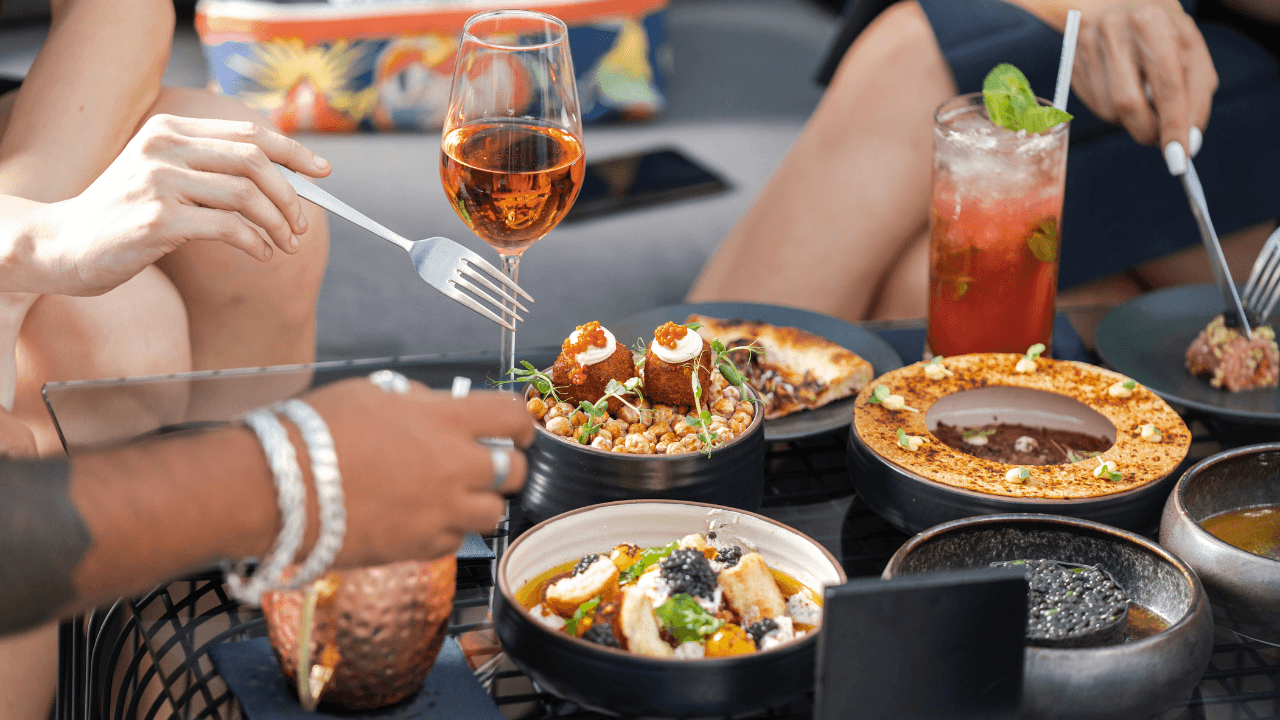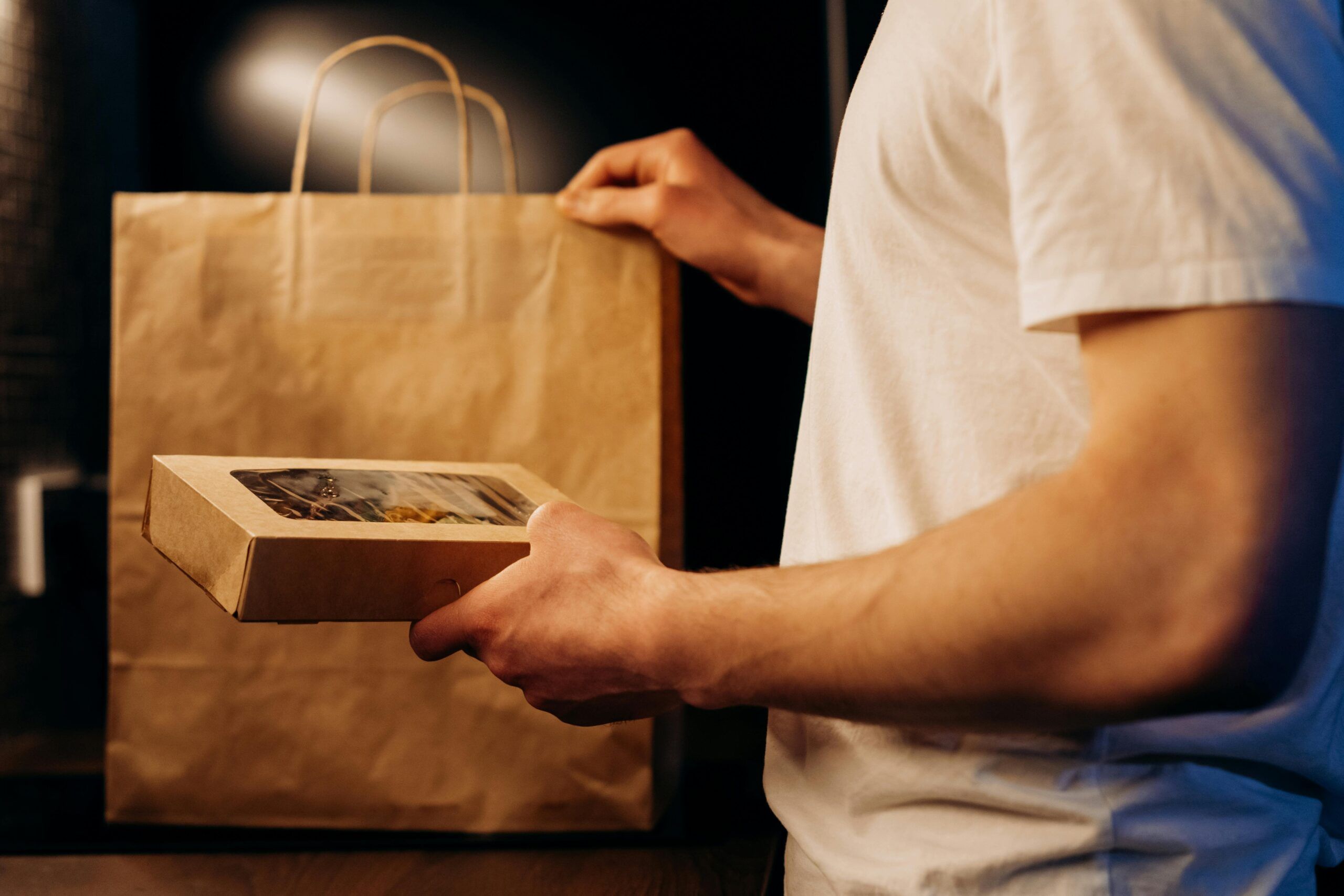- Checklist: Mastering the Basics of Social Media Marketing for Your Restaurant
- Advanced Social Media Marketing for Restaurants: Elevating Your Digital Presence
In today’s interconnected digital landscape, where every click, swipe, and share holds the power to influence choices, social media has emerged as a dynamic realm for businesses to flourish.
Among the countless sectors reaping the benefits of this virtual revolution, the restaurant industry stands at the forefront, savoring the delectable opportunities offered by advanced social media marketing.
It’s a world where the statistic speaks volumes: 63% of consumers now traverse the digital terrain to embark on a compelling journey of restaurant discovery and menu exploration.
In this article, we’ll dive into what it takes to optimize the power of social media for independent and chain restaurants alike to earn more loyal followers.
Checklist: Mastering the Basics of Social Media Marketing for Your Restaurant
You’re on the right track if you know what social media marketing entails.
But to ensure that you’re implementing the right strategies in social media management, here’s a comprehensive checklist to go over all the key elements:
Social Media Platform Proficiency:
- Are you consistently active on your chosen social media sites?
- Do you have optimized profiles with clear branding, contact information, and a link to your website?
Compelling Content Creation:
- Are you consistently posting high-quality photos and videos of your dishes, ambiance, and events?
- Is your content varied, including menu highlights, behind-the-scenes shots, and customer testimonials?
Engagement Excellence:
- Are you actively responding to comments, messages, and reviews in a timely manner?
- Do you engage with your social media users by asking questions, running polls, and encouraging discussions?
Strategic Hashtags
- Are you using relevant and trending hashtags to increase your posts’ discoverability?
- Have you created a branded hashtag to encourage user-generated content?
Consistent Branding
- Is your branding consistent across all platforms, including logo, color scheme, and tone of voice?
Content Calendar Master
- Do you have a content calendar that outlines your posting schedule, including special events and promotions?
User-Generated Content
- Are you actively encouraging customers to share their experiences and reposting their content with credit?
Promotions and Offers
- Are you using your social media channels to announce and promote special deals, discounts, and events?
Collaborations and Influencers
- Have you explored partnerships with local influencers or food bloggers to expand your reach?
Analytics Application
- Are you regularly reviewing platform insights and analytics to track engagement and post-performance?
Ad Campaign Evaluation
- Have you experimented with paid advertising, and are you analyzing its effectiveness in reaching your goals?
Geo-Tagging Utilization
- Are you using location tags and geo-tagging features to make it easier for customers to find and check in to your restaurant?
Continuous Adaptation
- Are you staying updated on social media trends and adjusting your strategies accordingly?
By checking off these items, you’re well on your way to harnessing the power of social media marketing to grow your restaurant business.
Remember, social media is a dynamic landscape, so continue refining each social media strategy to stay ahead and engage your audience effectively.
Advanced Social Media Marketing for Restaurants: Elevating Your Digital Presence
While mastering the basics is essential, taking your restaurant’s social media marketing strategy to the next level requires a deeper understanding of advanced techniques.
Advanced social media marketing entails leveraging cutting-edge strategies to impact your restaurant’s digital presence and overall success profoundly.
Here’s what it means:
Data-Driven Insights
Utilizing advanced analytics tools to extract meaningful insights from user behavior, engagement patterns, and post-performance. These insights guide decision-making and fine-tuning your restaurant’s social media strategy.
Some examples include:
Optimal Posting Times
Analyzing engagement data to determine when your audience is most active on different platforms. This helps you schedule posts at times when they are more likely to be seen and interacted with.
Content Performance Analysis
Tracking the performance of different types of content (e.g., images, videos, articles) to identify which types resonate best with your audience. For instance, you might find that video recipes receive more shares and comments than static images.
Audience Demographics
Using demographic data from social media insights to understand the age, gender, location, and interests of your audience. This information can guide content creation and targeting strategies.
Personalization and Segmentation
Implementing advanced targeting techniques to tailor content to specific customer segments. This involves creating content that resonates with different demographics and boosting engagement and conversion rates.
For example, if you’re targeting working people on the run, you’d want to market your efficient online delivery system and quick service. Such people wouldn’t want to know so much about your interior decor or ambiance if they just wait for their orders for 15 minutes and promptly leave.
Advanced Content Formats
Exploring innovative content formats such as 360-degree videos, interactive polls, live streaming events, and augmented reality experiences. These formats captivate and engage audiences on a whole new level.
Social Commerce Integration
Integrating e-commerce features directly into your social media platforms. This enables customers to browse menus, make reservations, and even place orders seamlessly without leaving their favorite platform.
Your Inbox, Your Rules!
Tailor your newsletter with the topics you're most interested in.
In-Depth Audience Analysis
Conducting comprehensive audience research to understand your customers’ preferences, behaviors, and pain points. This empowers you to create content that truly resonates with your target audience.
Some examples include:
Facebook Insights:
If your restaurant has a Facebook Page, Facebook Insights provides detailed data about your audience, including demographics (age, gender, location), engagement metrics, and when your fans are most active.
Instagram Insights:
Similar to Facebook Insights, Instagram Insights offers audience demographics, engagement metrics, and insights into the performance of your posts and stories.
Twitter Analytics:
Twitter Analytics provides information about your followers, tweet engagement, and even highlights your top-performing tweets.
LinkedIn Analytics:
If your restaurant has a social media presence on LinkedIn, its analytics tool provides insights into your company page’s followers, engagement metrics, and visitor demographics.
Pinterest Analytics:
Pinterest Analytics offers data about your audience’s interests, engagement with your pins, and top-performing pins.
Google Analytics:
While not exclusive to social media, Google Analytics helps you track website traffic from social media platforms, providing insights into user behavior, demographics, and conversions.
AI-Powered Chatbots
Implementing AI-driven chatbots for instant customer support and order assistance. These bots enhance user experience, providing quick responses and freeing up your staff’s time.
Strategic Partnerships
Forging strategic alliances with influential personalities, organizations, or brands that align with your restaurant’s values. This can exponentially expand your reach and credibility.
Advanced Paid Advertising
Utilizing advanced targeting options and retargeting techniques in paid advertising campaigns. This ensures your ads are seen by the most relevant audience, increasing the likelihood of conversions.
Conversion Optimization
Employing advanced techniques to optimize your social media profiles and posts for conversions. This involves strategically placing CTAs, utilizing social proof, and creating landing pages tailored to social traffic.
Integrated Marketing Campaigns
Creating cohesive marketing campaigns that span across multiple platforms. This ensures consistent messaging and maximizes the impact of your promotions.
Here’s an example of an integrated marketing campaign for a restaurant’s new seasonal menu launch:
Campaign Objective: Increase awareness and reservations for the restaurant’s new autumn menu.
Target Audience: Food enthusiasts aged 25-45 who appreciate unique dining experiences.
Campaign Channels:
- Social Media: Create visually appealing posts and videos showcasing the new autumn dishes. Use consistent hashtags like #FallFlavors and #NewMenu.
- Email Marketing: Send out a dedicated email to the restaurant’s subscriber list featuring mouthwatering images and a limited-time offer for reservations.
- Website Landing Page: Develop a new landing page on the restaurant’s website specifically for the autumn menu. Include high-quality images, detailed descriptions, and an easy reservation button.
- Influencer Collaboration: Partner with a local food influencer to host an exclusive preview event. They’ll share their customer experience on social media and blog posts.
- Physical Signage: Display banners and posters within the restaurant promoting the new menu, inviting diners to share their experience on social media.
- Social Media Ads: Run targeted Facebook and Instagram ads showcasing seasonal dishes and encouraging viewers to book a table.
Unified Message: “Indulge in the flavors of autumn with our new menu! From comforting soups to hearty mains, discover a culinary journey that captures the essence of the season. Limited-time offer: Reserve your table now.”
Content: High-resolution images of signature autumn dishes, short videos of chefs crafting seasonal creations, influencer’s behind-the-scenes coverage, and a walk-through video of the new menu’s highlights.
Coordination: All campaign elements launch simultaneously. Social media posts link to the dedicated website landing page for reservations. The influencer’s posts align with the campaign message.
Results Measurement: Track website traffic, reservation numbers, engagement rates on social media posts, email open rates, and influencer reach.
Adjustments: If engagement is high on social media but reservations are low, adjust the messaging on the landing page to emphasize the limited-time offer.
Overall Impact: The campaign resulted in a 30% increase in reservations compared to the previous season’s launch, and social media engagement doubled during the campaign period.
Advanced Storytelling
Crafting immersive narratives that go beyond one-off posts. Story arcs, serialized content, and multi-platform storytelling can captivate and engage audiences over an extended period.
For instance, if you have a specific cultural background, let’s say a Greek one, you can utilize this to tell the story of your feta salad and how freshly it’s made to accommodate those salivating mouths in the hot summer.
Emerging Platforms Exploration
Keeping an eye on emerging social media platforms and trends. Being an early adopter can provide a competitive advantage and access to a fresh audience.
Advanced social media marketing for restaurants goes beyond the basics, diving deep into data, innovation, and strategy.
By implementing these advanced techniques, you can create a dynamic and unforgettable digital experience that boosts your restaurant’s growth and sets you apart in an ever-evolving digital landscape.
Implement Advanced Restaurant Social Media Marketing and See Your Customers Grow
As we’ve explored the intricate blend of data-driven insights, AI chatbots, seamless integration, and captivating campaigns, it’s evident that the digital landscape offers boundless opportunities for restaurants to flourish.
By mastering the art of personalized engagement, harnessing the power of AI, and orchestrating integrated campaigns across various platforms, you hold the key to attracting a more extensive customer base and forging lasting connections with your patrons.
Implementing advanced social media strategies is essential for modern restaurants looking to stand out and grow. And to streamline this process, consider using Orders.co. This all-in-one platform simplifies online ordering, menu management, and marketing, allowing you to focus on providing great food and service.
Pairing Orders.co with the advanced social media techniques discussed in this article creates a recipe for success. Stay innovative and adaptive, and watch your restaurant thrive in the digital landscape.



